“Being Irish, he had an abiding sense of tragedy, which sustained him through temporary periods of joy.”
W.B. Yeats
Ireland, a country renowned for its rich culture, cuisine and history, has also produced individuals who have made a significant impact on a global scale, contributing to various fields and earning international recognition.
Here, we've a diverse list of famous Irish people throughout the years. This list is not exhaustive, but we've included an eclectic mix of historical figures, politicians, poets, writers, authors, musicians, actors, and other notable Irish individuals who have left an indelible mark on the world.

Brian Boru
Let's start with Brian Boru. Brian Boru was the High King of Ireland. He's thought to have ended the Viking invasions of Ireland and the Uí Néill Irish dynasties.
His most significant historical moment was leading the Irish forces to a triumphant victory at the Battle of Clontarf, a battle that he valiantly fought in and ultimately sacrificed his life.
Brian Boru led the Irish forces against a Norse-Irish alliance during the battle. Though the battle took place in Clontarf, Dublin, Brian's body was brought to Swords in County Dublin before then being interred in Armagh after twelve days of mourning.
The Battle of Clontarf (1014) wasn’t just Irish vs. Vikings; it was also a clash of Irish factions. While Brian Boru is credited with ending Viking rule, many Irish lords fought against him that day. Despite winning the battle, Brian was killed, likely while praying in his tent.
Jonathan Swift
Jonathan Swift is a famous Irish writer who's probably most famous for being the author of Gulliver's Travels, the story in which the titular Gulliver finds himself shipwrecked on Lilliput Island, inhabited by nations of tiny people.
Jonathan Swift was born in Dublin and educated at Trinity College Dublin. He wrote many of his works while living in Trim, County Meath.
Beyond writing, Jonathan Swift was also involved in politics, supporting two political parties (first the Whigs, then the Tories). He was also the Dean of St. Patrick's Cathedral in Dublin from 1713 until he died in 1745.
Oscar Wilde
Our first famous Irish person to be born after the famine. Oscar Wilde was born Oscar Fingal O'Flahertie Wills Wilde on October 16, 1854, in Dublin. His father was an ear and eye surgeon. He took after his mother, Lady Jane Wilde, an Irish nationalist and poet.
Oscar Wilde attended Trinity College, Dublin and Magdalen College, Oxford, and was famously witty and flamboyant. Oscar Wilde's most famous works include his only novel, “The Picture of Dorian Gray” and famous plays “Lady Windermere's Fan”, “A Woman of No Importance”, “An Ideal Husband”, and “The Importance of Being Ernest”.
William Butler Yeats
William Butler Yeats was an Irish poet and writer born in Sandymount, Dublin. He moved with his family to London when he was young but regularly returned to Dublin. Yeats became a pivotal figure in the Celtic Revival, which sought to promote and preserve Irish literature and culture. He co-founded the Irish Literary Society in London and the National Literary Society in Dublin.
He also co-founded the Irish Literary Theatre, which would become the Abbey Theatre, Ireland's national theatre. In 1923, he was awarded the Nobel Prize in Literature for his inspired poetry and used the money to renovate his tower home, Thoore Ballylee, in County Galway. He was also a senator for the Irish Free State, serving from 1922 to 1928.
- W.B. Yeats (1923)
- George Bernard Shaw (1925)
- Samuel Beckett (1969)
- Seamus Heaney (1995)
Ernest Shackleton
The famous explorer Ernest Shackleton was born in Kilkea, County Kildare. His most notable achievements were likely his three British expeditions to Antarctica. His first Antarctic expedition was between 1901 and 1904. The Nimrod Expedition was the first expedition that Shackleton led. He set the record for the closest expedition to the South Pole, getting within 97 miles. Shackleton's most famous expedition was the Endurance Expedition, where he attempted to cross Antarctica. The ship, the Endurance, ended up trapped in pack ice and sank, leaving the crew stranded.
James Joyce
The Irish author James Augustine Aloysius Joyce was born in Dublin on February 2, 1882. He studied modern languages at University College Dublin and then at the University of Paris. He's most famous for his works "Dubliners", "A Portrait of the Artist as a Young Man", "Ulysses", and "Finnegans Wake". "Ulysses" is often considered one of the greatest works of English-language literature.
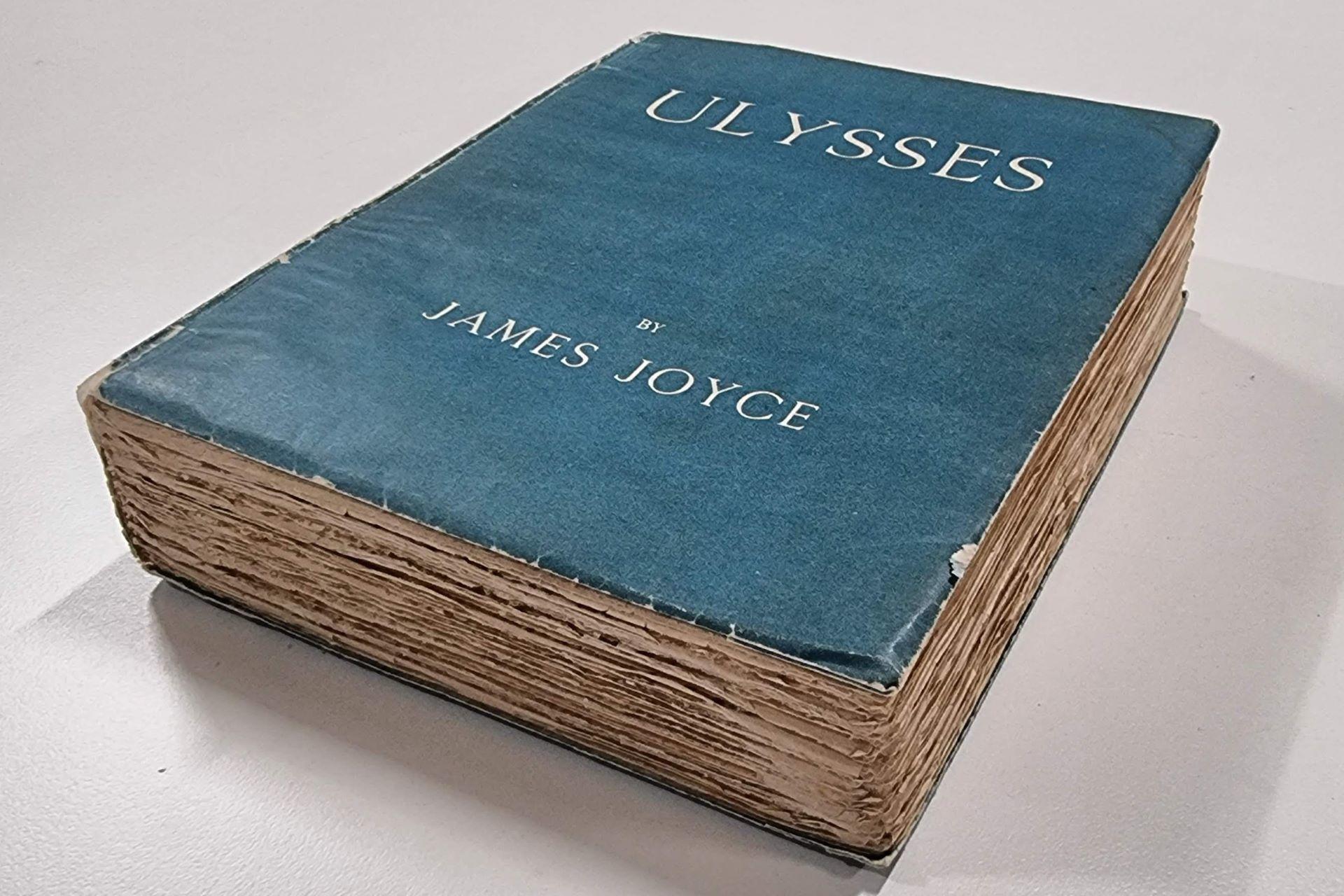
James Joyce's writing was not only unique but also groundbreaking. His experimental approach to established forms, particularly in his work 'Ulysses', led to its banning in several countries for obscenity.
The work features several memorable quotes, including:
- "History, Stephen said, is a nightmare from which I am trying to awake." (from "Ulysses")
- "A man of genius makes no mistakes. His errors are volitional and are the portals of discovery." (from "Ulysses")
- "Love loves to love love." (from "Ulysses")
Samuel Beckett
The Irish writer and translator Samuel Beckett was born in Foxrock, Dublin. He's most famous for his contributions to literature and writing through both writing and translation.
He studied at Portora Royal School in Enniskillen, County Fermanagh, the same place as Oscar Wilde. He also studied French, Italian, and English at Trinity College Dublin.
After graduation, he moved to Paris and taught English. While there, he befriended James Joyce and assisted him with his research for Finnegans Wake.
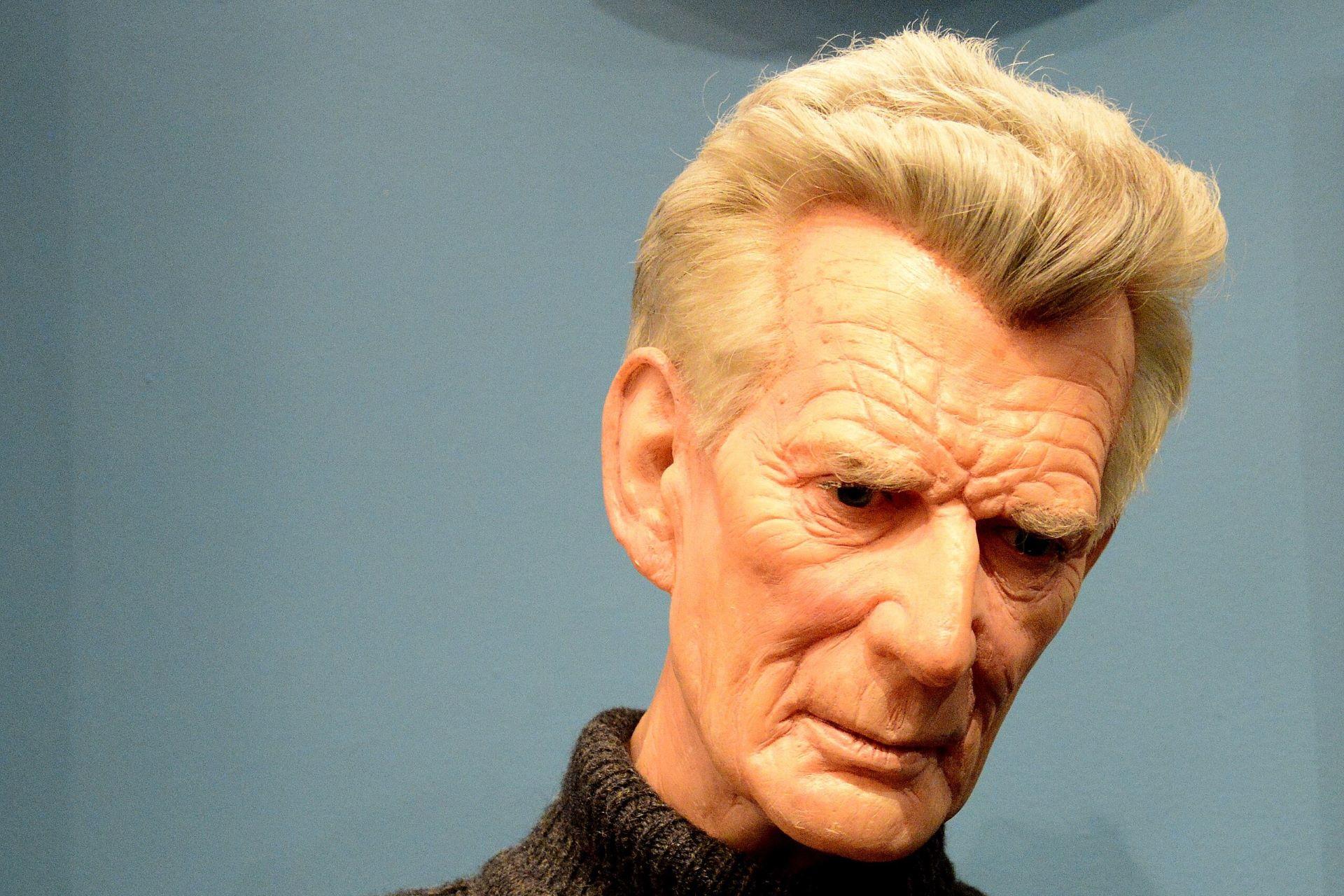
During the Second World War, Beckett was part of the French Resistance and spent months hiding in the countryside to avoid being captured by the Gestapo. He was awarded the Croix de Guerre and the Médaille de la Résistance by the French government.
He was also awarded the Nobel Prize in Literature in 1969.
Famous works include:
- Waiting for Godot (1953)
- Endgame (1957)
- Krapp's Last Tape (1958)
- Happy Days (1961)
- Molloy (1951)

Seamus Heaney
Seamus Heaney is another renowned Irish writer. He is renowned for his poetry, plays, translations, and academic work. As a poet, Seamus Heaney's influence extends far beyond Ireland. His global recognition is evident in the fact that he was awarded the Nobel Prize in Literature in 1995, solidifying his place as one of the world's greatest poets.
He's famous for works such as "Death of a Naturalist", "Door into the Dark", "Wintering Out", "North", and "Field Work". His work stands out because it often explores themes connected to Ireland and the Irish culture, landscape, and history.
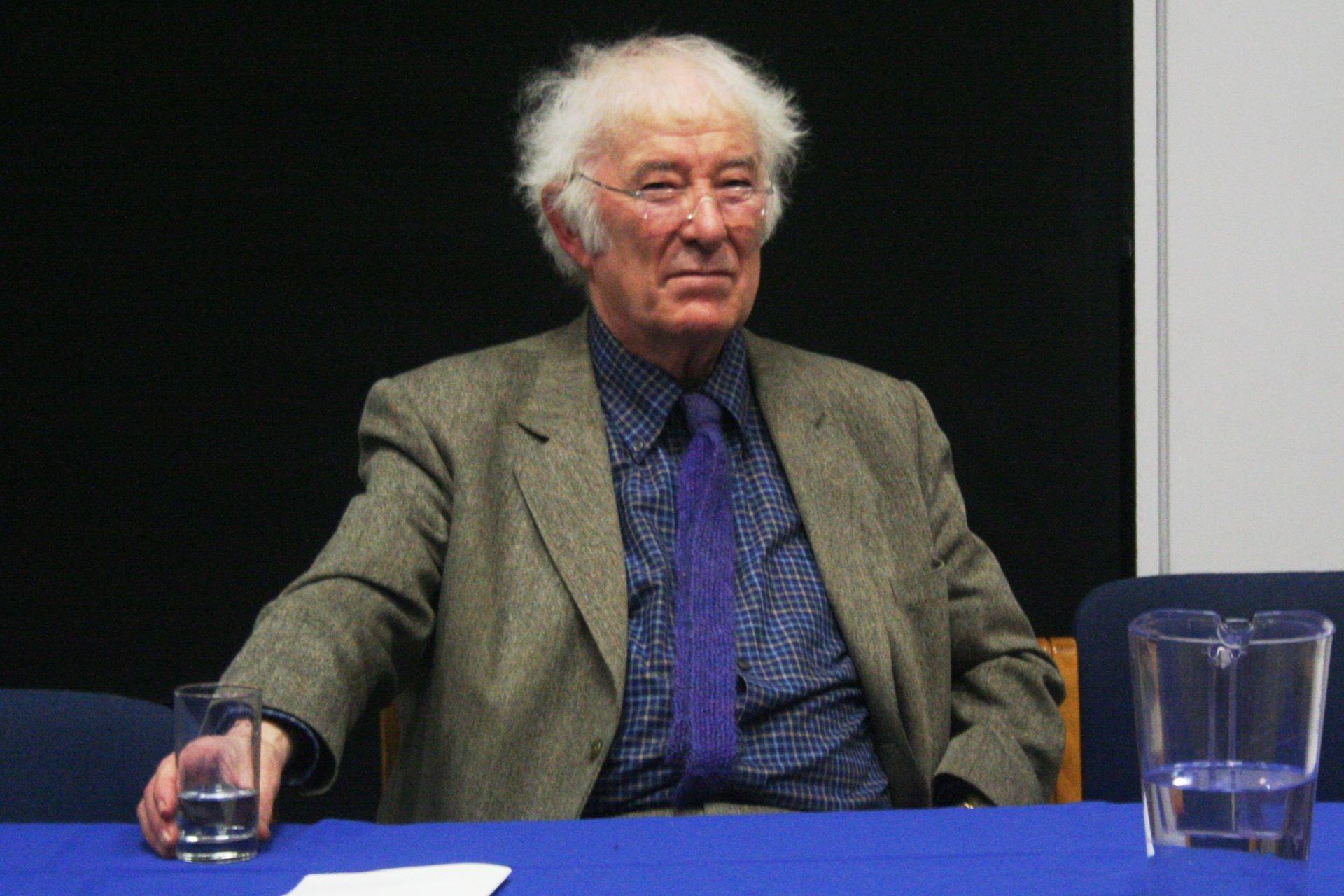
Mary Robinson
Mary Robinson was born in Ballina, County Mayo, and studied law at Trinity College Dublin. When she attended Harvard Law School, she was the first Irish woman ever to study law there. She was elected to the Irish Senate (Seanad Éireann) in 1969 as an independent candidate, representing the University of Dublin constituency. She was a senator until 1989. She became the first woman to be elected President of Ireland in 1990 and served in that role until 1997.
Pierce Brosnan
Pierce Brosnan is a renowned Irish actor best known for his portrayal of James Bond in the popular film series. In total, he appeared in four James Bond films. He's also appeared in films such as Mamma Mia!, Mrs. Doubtfire, The Thomas Crown Affair, and Dante's Peak. His acting has included roles in a wide range of films, from serious dramas to family comedies.
James Bond films.
Bono
Paul David Hewson was born in Dublin, Ireland, but he is more commonly known by his stage name and nickname, Bono. He's best known as the singer of the Rock group U2, which has sold between 150 and 170 million records worldwide, making it one of the most commercially successful groups ever.
- 170+ million albums sold worldwide
- Over 20 Grammy Awards
- First band to achieve No.1 albums in four consecutive decades in the US and UK
- Known for record-breaking tours like the 360° Tour, the highest-grossing tour in history (until 2019)
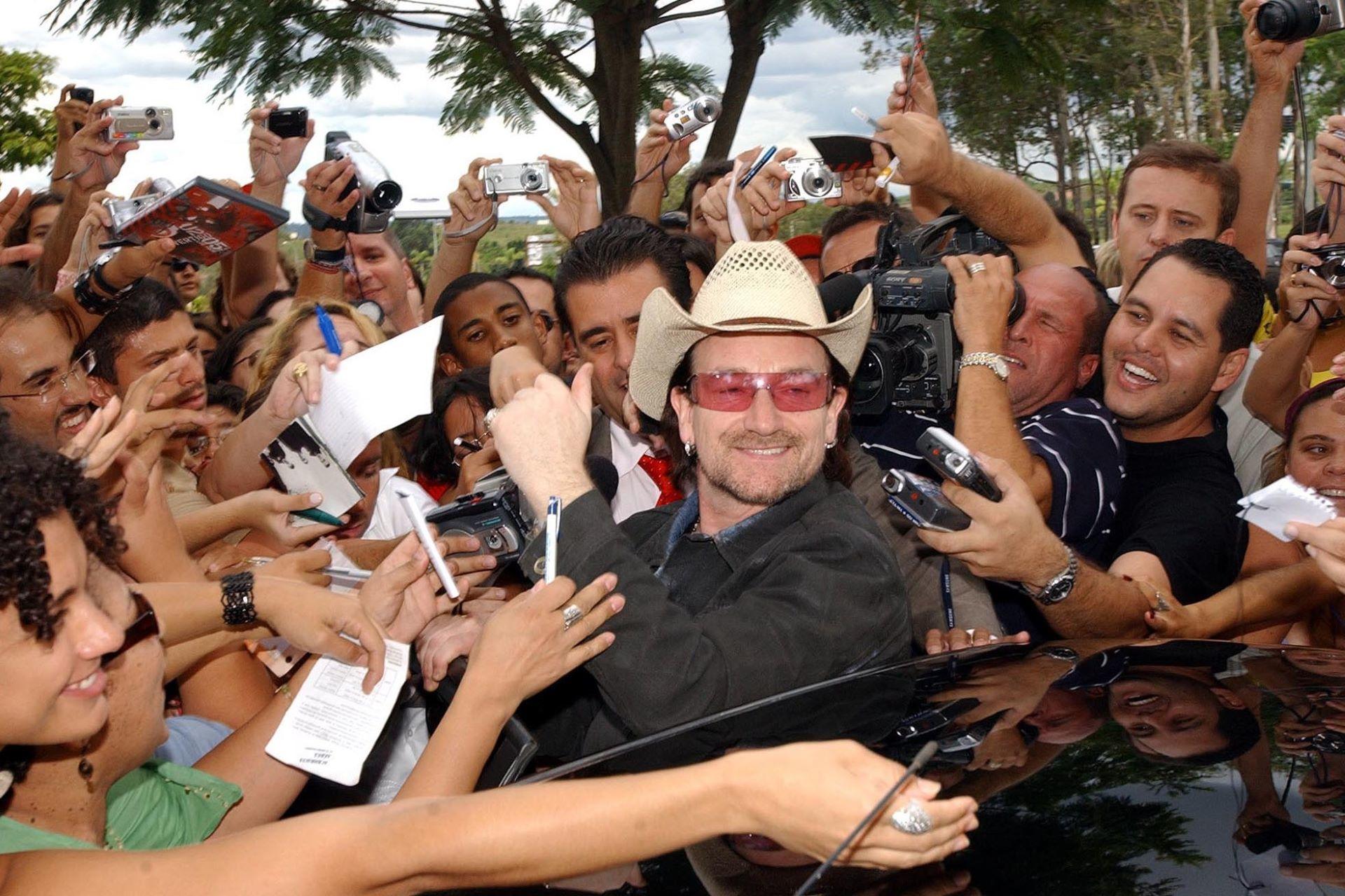
Enya
Eithne Pádraigín Ní Bhraonáin was born in Dore, Gweedore, County Donegal and is best known by her stage name Enya. As a musician and singer, she's the second-best-selling Irish musician after U2 and the most successful Irish solo artist.
Her music blends various sounds and often incorporates elements of Celtic and Irish folk instruments into more contemporary genres. Enya's most famous song is likely "Orinoco Flow (Sail Away)", but with such a long career, many more of her songs are worth listening to.
records worldwide.
Sinead O'Connor
Sinead O'Connor was an Irish singer born in Dublin. When she converted to Islam in 2018, she adopted the name Shuhada' Sadaqat. Still, she continued to perform her music as Sinead O'Connor.
Her most famous song was "Nothing Compares 2 U", written by the American musician Prince. Her death in 2023 was met with tributes from other musicians, artists, and fans worldwide.
Colin Farrell
Colin Farrell is an actor from Castleknock, Dublin. He's been in many successful films, but his most famous role for many might be in the 2008 Irish comedy film In Bruges alongside Brendan Gleeson.
In 2022, he played another role alongside Brendan Gleeson in The Banshees of Inisherin, working with the director Martin McDonagh, who had also directed In Bruges.
While Inisherin isn't a real place, there are plenty of famous Irish landmarks you can visit that are just like it, including the Aran Islands.
Cillian Murphy
Cillian Murphy is an Irish actor from Cork. His most famous role was arguably in the Peaky Blinders series. He's also appeared in several Christopher Nolan films and won the Academy Award for Best Actor for his role in the 2023 film Oppenheimer. Of course, these are just a few of Ireland's most famous people; many others could have made this list. Who would be on your list?
| Name | Date of Birth – Date of Death | Place of Birth | Profession | Most Famous For |
|---|---|---|---|---|
| Brian Boru | c. 941 – 23 April 1014 | Killaloe, Co. Clare | High King of Ireland | Battle of Clontarf; ending Viking dominance |
| Jonathan Swift | 30 Nov 1667 – 19 Oct 1745 | Dublin | Writer, Satirist, Cleric | Gulliver’s Travels |
| Oscar Wilde | 16 Oct 1854 – 30 Nov 1900 | Dublin | Playwright, Poet, Author | The Picture of Dorian Gray, The Importance of Being Earnest |
| W.B. Yeats | 13 June 1865 – 28 Jan 1939 | Sandymount, Dublin | Poet, Playwright, Politician | Easter 1916, The Second Coming |
| Ernest Shackleton | 15 Feb 1874 – 5 Jan 1922 | Kilkea, Co. Kildare | Explorer | Endurance Expedition to Antarctica |
| James Joyce | 2 Feb 1882 – 13 Jan 1941 | Dublin | Novelist, Poet | Ulysses |
| Samuel Beckett | 13 Apr 1906 – 22 Dec 1989 | Foxrock, Dublin | Playwright, Novelist, Poet | Waiting for Godot |
| Seamus Heaney | 13 Apr 1939 – 30 Aug 2013 | Castledawson, Co. Londonderry | Poet, Translator | Death of a Naturalist |
| Mary Robinson | 21 May 1944 – | Ballina, Co. Mayo | Politician, Lawyer | First female President of Ireland |
| Pierce Brosnan | 16 May 1953 – | Drogheda, Co. Louth | Actor | James Bond (4 films) |
| Bono | 10 May 1960 – | Dublin | Singer, Activist | Lead singer of U2 |
| Enya | 17 May 1961 – | Gweedore, Co. Donegal | Musician | Orinoco Flow (Sail Away) |
| Sinéad O’Connor | 8 Dec 1966 – 26 July 2023 | Dublin | Singer, Activist | Nothing Compares 2 U |
| Colin Farrell | 31 May 1976 – | Castleknock, Dublin | Actor | In Bruges, The Banshees of Inisherin |
| Cillian Murphy | 25 May 1976 – | Douglas, Cork | Actor | Peaky Blinders, Oppenheimer |
Summarise with AI:

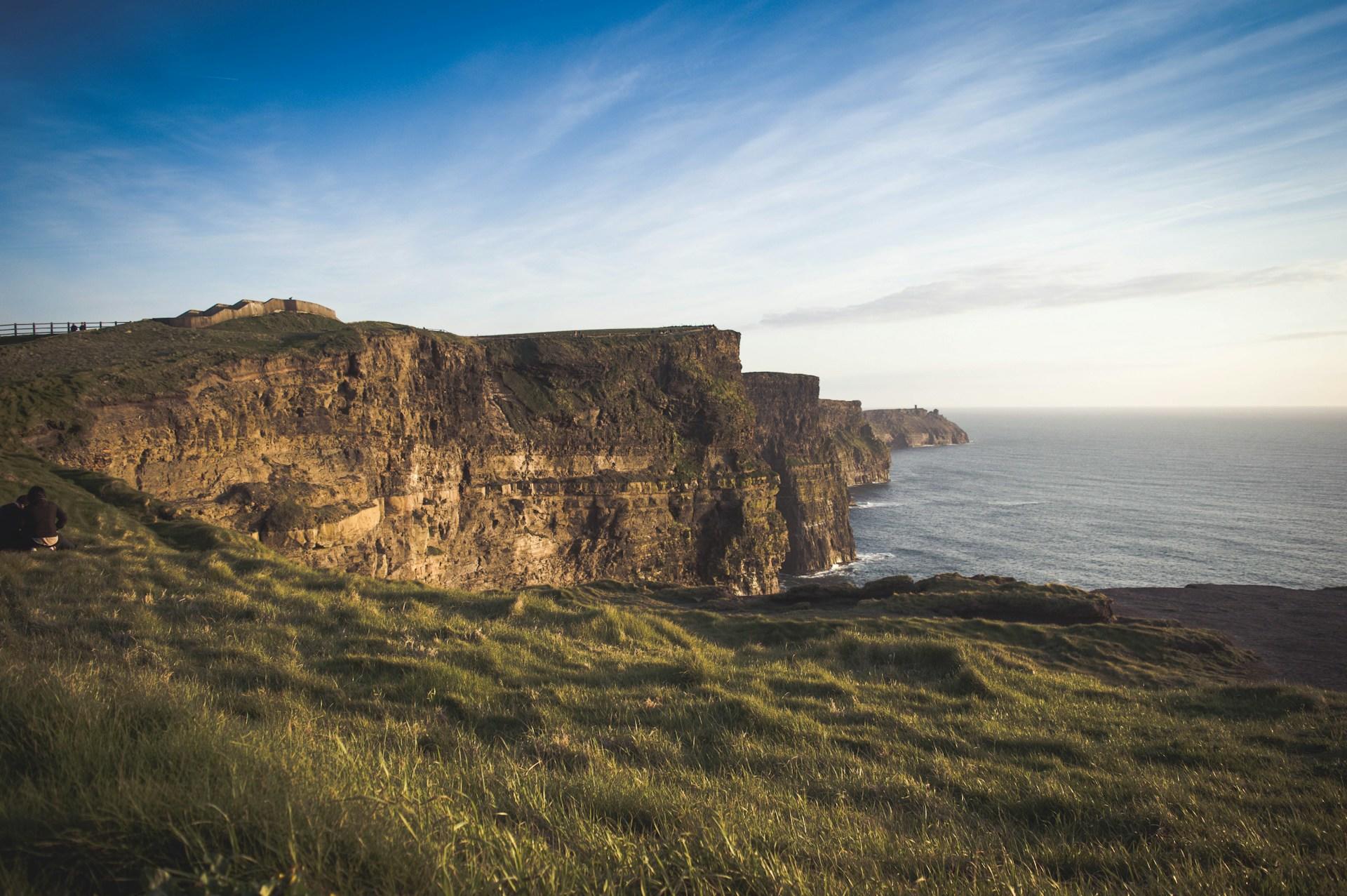












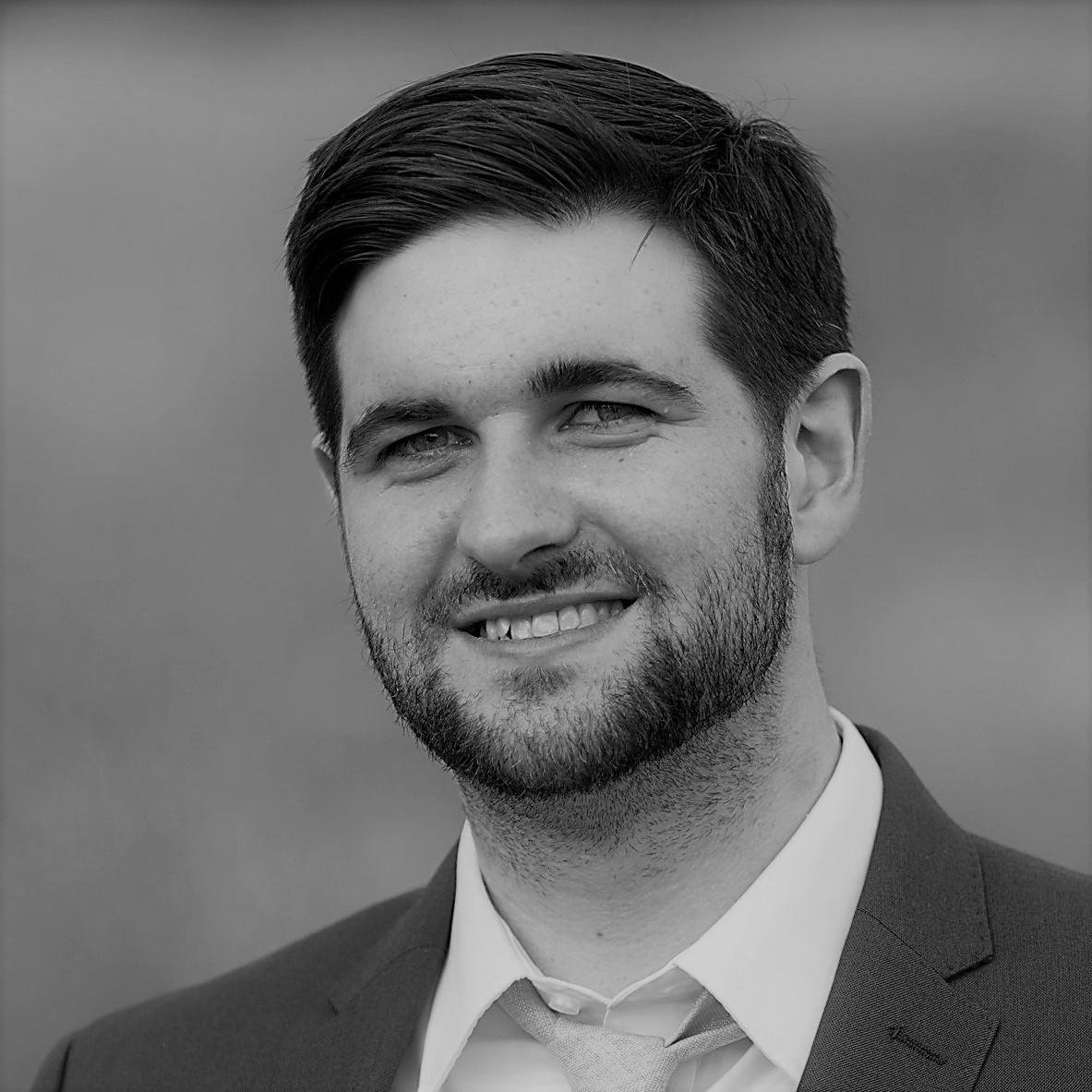
Well done. Hats off to those who helped put this